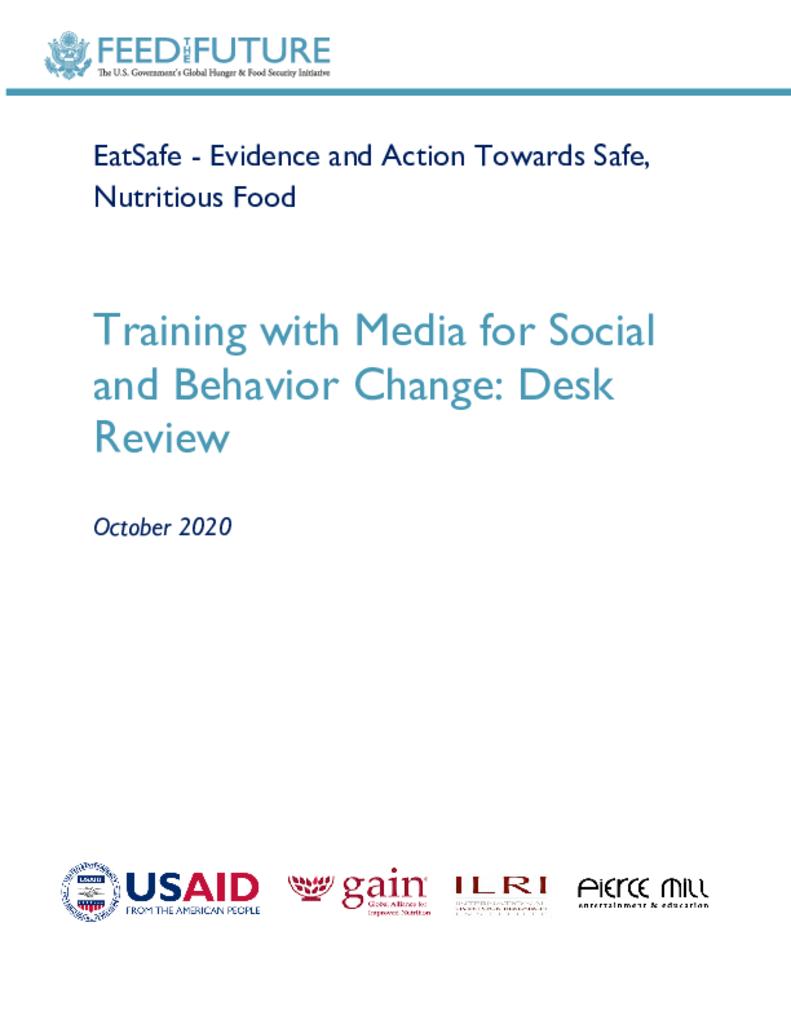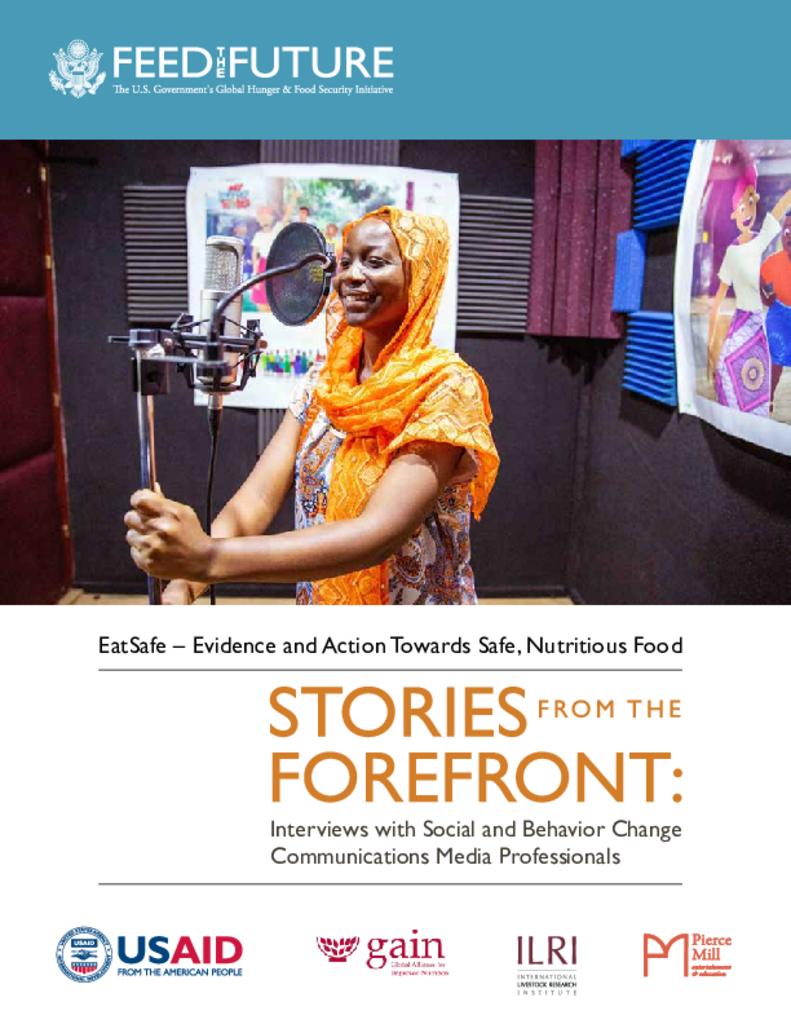Media-based social and behaviour change communications (SBCC) are strategies to increase the salience of interventions that seek to train target audiences on improved practices. EatSafe conducted two activities, a literature review and interviews with practitioners, to better understand the nuances of media-based SBCC strategies.
EatSafe first conducted a review of the published literature on media-based SBCC interventions as applied to food safety trainings. Studies published between 2010 and 2020 were examined, and inclusion criteria included intentionally incorporating media and SBCC into the design of food safety trainings targeting the general public, community workers, leaders, and volunteers. Nineteen unique interventions were identified, implemented in 12 countries. Key themes identified included the importance of community-based theory, using culturally sensitive planning, and documenting training and media components.
EatSafe then interviewed top practitioners from the SBCC field to identify the factors critical to programme design and intervention implementation. Interviewees included executive directors, country directors, producers, and researchers. Three broad themes emerged that have practical implications for the design of EatSafe SBCC media interventions: human connection is essential; storytelling works to motivate behavior change; and distribution is key.

